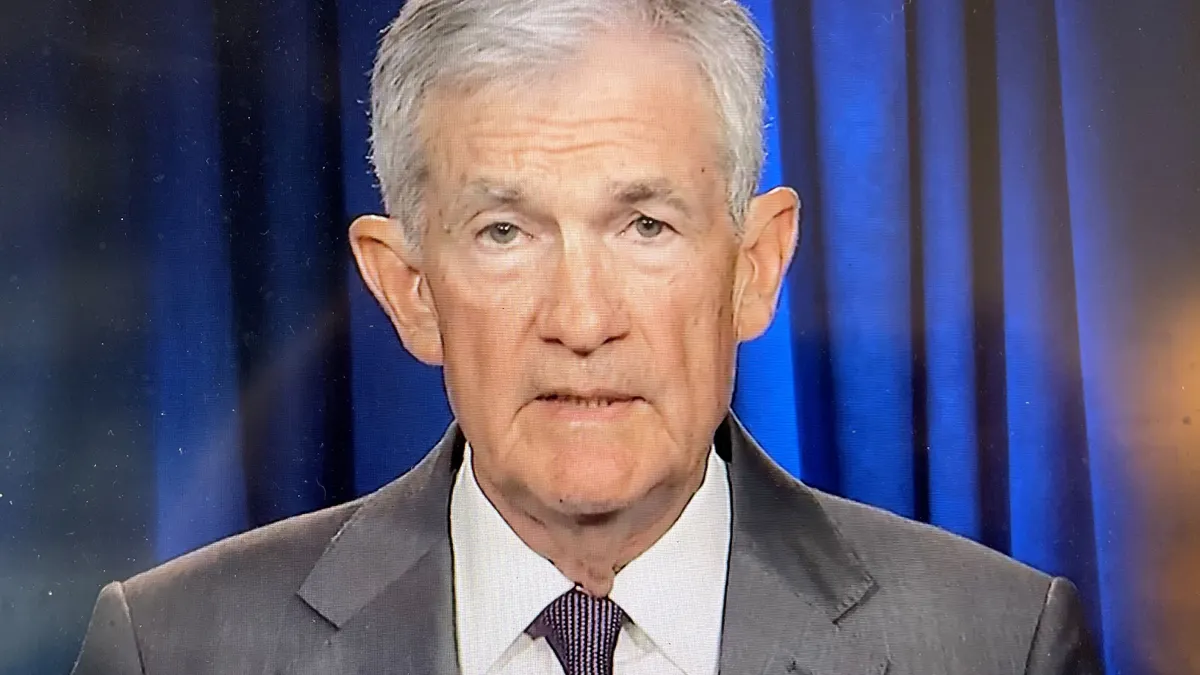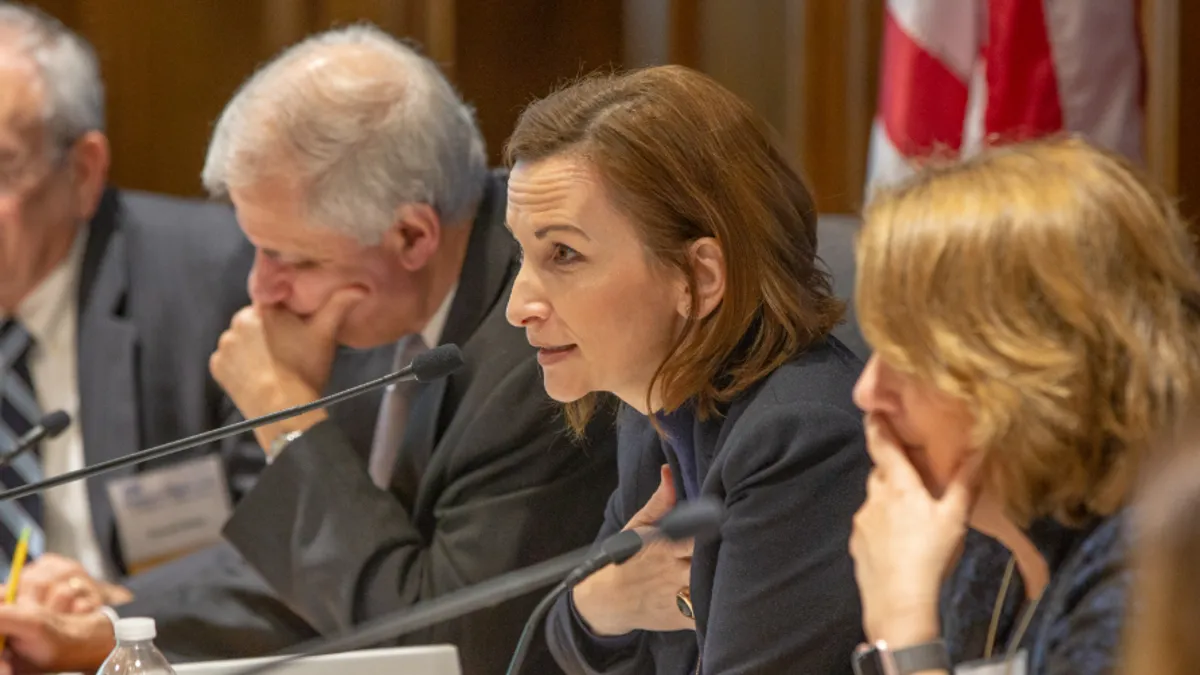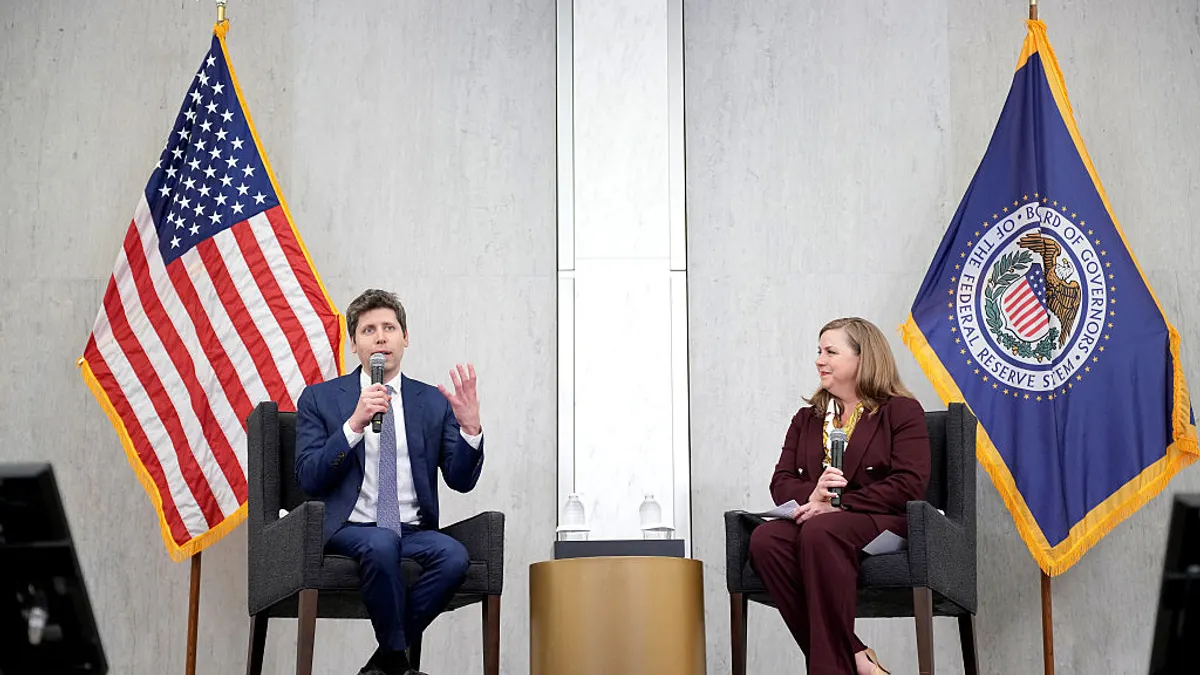President Donald Trump moved to fire Federal Reserve Gov. Lisa Cook “effective immediately,” according to a letter posted to social media Monday, citing mortgage fraud allegations as his reasoning.
Meanwhile, Cook’s lawyer, Abbe Lowell, confirmed to CNBC they “will be filing a lawsuit challenging this illegal action.”
Cook, in a statement Monday, said she “will not resign.”
“President Trump purported to fire me ‘for cause’ when no cause exists under the law, and he has no authority to do so,” she said. “I will continue to carry out my duties to help the American economy as I have been doing since 2022.”
In his letter dismissing Cook, Trump said he had “determined that there is sufficient cause to remove you from your position.”
“The American people must be able to have full confidence in the honesty of the members entrusted with setting policy and overseeing the Federal Reserve,” Trump wrote. “In light of your deceitful and potentially criminal conduct in a financial matter, they cannot and I do not have such confidence in your integrity.”
The conduct in question arises from a criminal referral Federal Housing Finance Agency Director Bill Pulte made to the Justice Department this month, alleging Cook obtained two mortgages in 2021, two weeks apart, but claimed in paperwork that each would be used as a principal residence.
“It is inconceivable that you were not aware of your first commitment when making the second. It is impossible that you intended to honor both,” Trump wrote Monday. “At a minimum, the conduct at issue exhibits the sort of gross negligence in financial transactions that calls into question your competence and trustworthiness as a financial regulator.”
Any legal battle is likely to hinge on the extent of presidential powers. The president is permitted to remove a Fed governor for cause, but none has done so in the 74 years that the central bank has been independent of the Treasury Department.
Trump has relentlessly badgered Fed Chair Jerome Powell over his reluctance to lower interest rates and has publicly discussed firing him but has walked back the threat each time.
The Fed did not immediately comment Monday.
Lowell, in a statement Monday, said Trump’s “demands lack any proper process, basis or legal authority.”
“President Trump has taken to social media to once again ‘fire by tweet’ and once again his reflex to bully is flawed,” Lowell said.
‘Kill shot’
Aaron Klein, a senior fellow at the Brookings Institution, called Trump’s action a “kill shot at Fed independence.”
“Trump is saying the Fed is going to do what he wants it to do, by hook or by crook,” Klein told Bloomberg.
Trump has long pushed for interest rates to be up to 3 percentage points lower than they are now, but the Federal Open Market Committee, which sets those rates, has resisted dropping them — though not unanimously.
Fed Gov. Christopher Waller and Vice Chair for Supervision Michelle Bowman, both Trump first-term appointees, dissented last month with the FOMC’s decision to keep rates steady.
Shortly after that meeting, now-former Fed Gov. Adriana Kugler, a Biden appointee, resigned, and Trump quickly nominated Stephen Miran, the chair of the White House Council of Economic Advisors, to fill the seat.
At the Kansas City Fed’s annual Jackson Hole symposium Friday, Powell appeared to prime the market for a potential rate drop at the FOMC’s next meeting in September, saying economic indicators “may warrant adjusting our policy stance.”
In moving against Cook on Monday, Trump may be showing he’s not keen to wait and see what the FOMC will do but rather eliminate the status quo — a prospect that drew questions from some observers and outright rebukes from others.
“To the extent that Fed independence stands for anything, it stands for the idea that monetary policy should not be made by the whims of the sitting president,” Peter Conti-Brown, a professor at the University of Pennsylvania’s Wharton School, told The Wall Street Journal. “If we allow this to become the norm, then this is the end of Federal Reserve independence as we know it.”
Lev Menand, a professor at Columbia Law School and former economist at the New York Fed, told The New York Times he thought “central bank independence was hanging by a thread before this.”
Sen. Elizabeth Warren, D-MA, in a statement Monday, called the dismissal illegal, labeling it “the latest example of a desperate President searching for a scapegoat to cover for his own failure to lower costs for Americans.”
“It’s an authoritarian power grab that blatantly violates the Federal Reserve Act, and must be overturned in court,” Warren said.
Some Republican officials, meanwhile, took to social media, to show their support of the measure.
“After years of no accountability under Jay Powell’s tenure at the @FederalReserve, @POTUS is doing the right thing to hold people accountable, protect American families, and restore trust in the Fed,” Sen. Rick Scott, R-FL, wrote Monday on X.
Pulte, in a post on X, thanked Trump for his “commitment to stopping mortgage fraud and following the law.”
“If you commit mortgage fraud in America, we will come after you, no matter who you are,” he wrote Monday.
‘For cause’
At least one observer questioned the scope of the FHFA’s effort to root out mortgage fraud.
“To my knowledge, the FHFA has never previously directed [Fannie Mae and Freddie Mac] to produce the loan files for specific individual borrowers, much less without any prior cause for concern about those borrowers,” Adam Levitin, a Georgetown University professor of law and finance, wrote Monday in a blog post. “Instead, it seems that Pulte gave the [government-sponsored entities] a hit list of folks whose mortgages files he wanted to review because of their politics.”
Pulte’s referral letter is Trump’s only basis for action, Levitin wrote, and neither Pulte nor Trump can say whether Cook knowingly promised to make either residence her principal home. Further, a “principal” residence may carry different meaning from a “primary” residence, Levitin added.
“There is not even a prima facie case of fraud here, only a scant bit of evidence that is consistent with fraud,” Levitin wrote. “What’s more, that evidence is basically fruit of the poisonous tree, the result of a politically motivated fishing expedition by Pulte.”
Up for debate, too, may be the meaning of “cause.” Typically, “for cause” firings have involved inefficiency, neglect of duty or malfeasance.
It is doubtful that mortgage fraud would constitute cause, Levitin said, because it is “unrelated to the execution of Cook's office.”
Additionally the mortgages in question were obtained in 2021 — before Cook joined the Fed in 2022.
Pulte, for his part, seemed well aware of the timeline to prove cause, posting Friday on X: “We have obtained a document Lisa Cook submitted to the U.S. Government while serving as Federal Reserve Governor. In it, on February 28, 2023, she represents to the U.S. Government that the Atlanta Property is her PERSONAL RESIDENCE. However, Lisa Cook, as a then-sitting Fed Governor and six months earlier, on September 1, 2022, appears to have listed that same property for RENT.”
At least one lawmaker Monday, Rep. Don Beyer, D-VA, noted in a post on X that Trump is attempting to fire Cook on an allegation that she had done something the president himself was convicted of doing.
“This will be fought in court,” Beyer wrote.
Next steps
Cook may well apply for a preliminary injunction from a federal district court to halt Trump’s firing of her. If a judge grants one, the Trump administration would likely appeal to a higher court.
“Then we would get clarity on what the Supreme Court means when they say that Lisa Cook has for-cause protection and what the contours of that protection are,” Conti-Brown told Bloomberg.
But a legal battle may at least broaden the well of legal minds determining cause, Levitin wrote.
“Whatever ‘for cause’ dismissal means, the President cannot be the sole arbiter of ‘cause’ or else the restriction is meaningless,” he wrote. “And if it is to have any meaning, the President would have to, at the very least, give [Cook] an opportunity to be heard.”
As for the wider implications of Monday’s action, if Cook were to be replaced by a Trump loyalist, that would give the president four reliable votes — a majority of the Fed board — but not enough on its own to counteract the five regional Fed presidents who also vote with the FOMC on interest rates.
However, the Fed’s integrity on a global level may also be at play, analysts said.
“It takes a while to erode an institution’s credibility,” Lars Christensen, CEO and head of analysis at the consultancy Paice, told the Financial Times. “But once trust is broken, the cost is immense.”




















